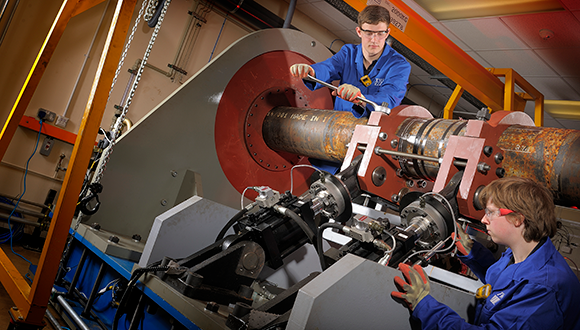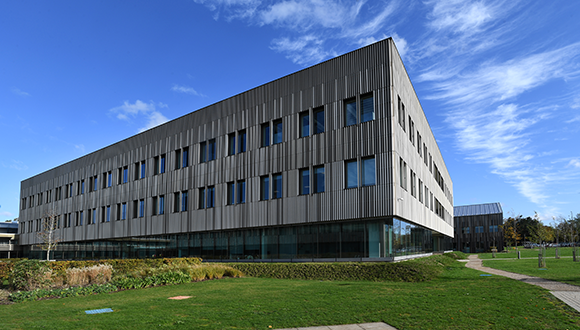Accreditation is a mark of assurance that the degree meets the standards set by the Engineering Council in the UK Standard for Professional Engineering Competence (UK-SPEC).
An accredited degree will provide you with some or all of the underpinning knowledge, understanding and skills for eventual registration as an Incorporated (IEng) or Chartered Engineer (CEng).
Some employers recruit preferentially from accredited degrees, and an accredited degree is likely to be recognised by other countries that are signatories to international accords.
Delivered with NSIRC at TWI, a state-of-the-art postgraduate engineering facility in Cambridge, this postgraduate engineering course aims to develop highly sought after graduates, who are oil and gas engineering specialist with the skills to rapidly design and commission oilfield installations to meet energy demands.
Applicants suited to this degree

The NSIRC and Brunel Oil and Gas programme is suited to a broad range of expertise, including drilling engineers, chemical engineering students and engineers already working with in the energy industry.
NSIRC is a welcoming international community, with cohorts and graduates from every corner of the globe. UK, EU and overseas / international applicants will always be welcome and encouraged.
For more information, including English language requirements, details of tuition fee and to enrol, please visit the Brunel University London website.
Access to £15m of equipment facilities
In addition to access to £15m of specialised research equipment through TWI Innovation Network, students will enjoy:
- Dedicated teaching spaces
- On‑site high performance computing facility to run complex numerical simulation to support their experimental work
- Sports facilities
- Access to all buildings at Brunel University London campus connected with the course
A network environment and collaborative ethos

Being based within industry gives mechanical engineering degrees of this nature an excellent opportunity to flourish.
With MSc students working together on applied research for real engineering projects, the learning experience is greatly enhanced, focusing new skills and knowledge towards what industry is calling for now.
Brunel University lecture rooms and lab spaces at TWI, Cambridge. Photo: Brunel University London
Oil and Gas UK
The United Kingdom has a long history connected with oil technology courses and oil field degrees. In Scotland, oil production courses are mostly based out of Aberdeen. Thanks to our partners at Brunel University, NSIRC has been able to bring important degrees for oil and gas industry to TWI in Cambridge.
Being based in NSIRC at TWI allows masters students to conduct research the heart of a global centre for oil and gas technology research.
TWI has been an import research partner to the UK and International energy companies since the 1950s. Today it counts as client's companies such as BP, Total, Chevron, Subsea and many more. In 2019, TWI partnered with the Saudi Aramco Technologies Company and ADNOC, to form the Non-metallic Innovation Centre (NIC).

HRH The Princess Royal visited TWI Cambridge to open three new buildings dedicated to NSIRC the advancement of engineering. Photo: TWI Ltd